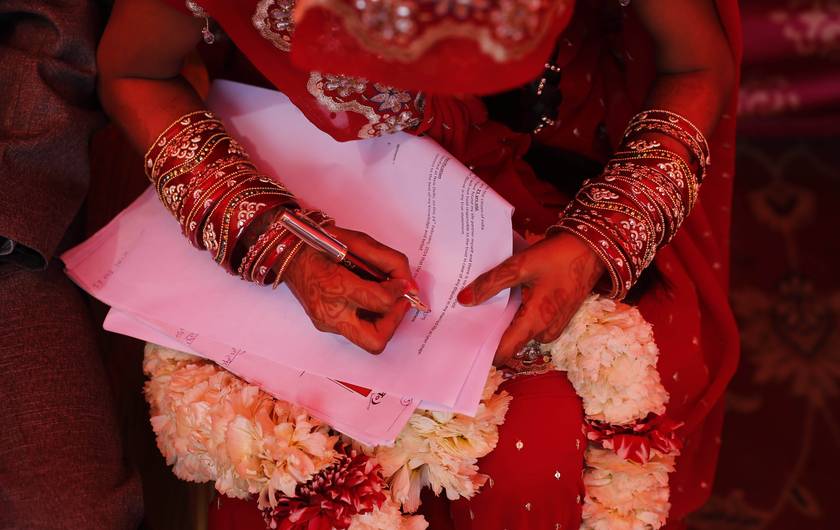Marital Rape Plea Fails To Move Supreme Court
Marriage doesn't extinguish legal and sexual autonomy of the wife

NEW DELHI:The Supreme Court on Tuesday refused to entertain a plea for marital rape by a woman, who told the court the she was repeatedly violated by her husband with whom she had a love marriage.
The Bench headed by Justice A.R. Dave said a general law cannot be laid down as the plea is filed by an individual. Appearing for the victim, senior counsel Colin Gonsalves then withdrew the plea and informed the media that he would approach the court again through some women’s organization.
The woman who originally hails from Assam and was a Delhi University graduate, had married the man in 2011, and ever since then started facing harassment from her in-laws and her husband for not bringing enough dowry.
"If the petitioner refused sexual intercourse, her husband would force himself on her. The petitioner was routinely forced to have violent sexual intercourse against her consent, in spite of repeated pleas that she wasn't in a state to have intercourse. During one such instance, when the petitioner refused, her husband threw her out at three... in the morning," the petition said.
"Marital rape survivors often experience sexual dysfunction, problems in sleeping and eating, bladder infections, miscarriages, infertility, sexually transmitted diseases, vaginal disorders, broken bones, bloody noses, black eyes, bruising, fatigue, and other wounds. Emotionally, marital rape survivors may have flashbacks, inability to trust, depression and traumatic stress disorder”, it further continued.
She was repeatedly ravished and faced injuries despite having given 10 lakhs in dowry to her in-laws.
Marital rape in India, despite being strongly advocated by some of the most competent jurists of our country, is still not a crime. Section 375 of IPC gives out the definition of rape, entailing several circumstances under which “a man is said to commit ‘rape’, while accepting marital rape with a somewhat vague and insufficiently explained clause. It states, “Sexual intercourse by a man with his own wife, the wife not being under fifteen years of age, is not rape.”
After the infamous Delhi gang rape, Justice Verma had been entrusted with task of listing out the suggestions for a large overhaul of rape and molestation laws in our country.
In the resulting report it was strongly recommended that marital rape be considered just as unlawful an act as any other rape.
The report cited the 1991 recognition of equal rights of man and woman in a bond of marriage, by Lord Keith, as he spoke to Court that, “marriage is in modern times regarded as a partnership of equals and no longer one in which the wife must be the subservient chattel of the husband”.
The marital rape gets its immunity from the dominant stance taken by many major jurisdictions since the ancient times, but since then, many countries have gone on to devise laws to indict people who are accused of betraying trust of their spouses.
The UK, South Africa, Canada, and Australia are some of the countries who have criminalized marital rapes, after long debates against the patriarchal mindsets, which were responsible for the immunity of such acts in first place.



